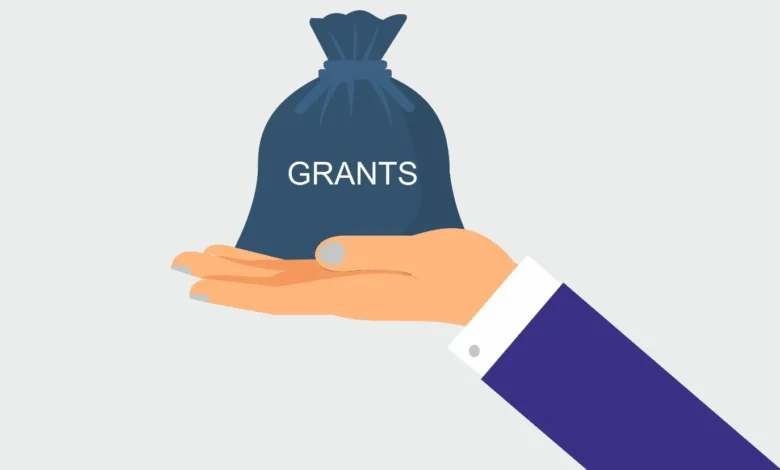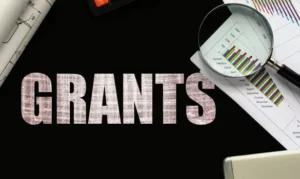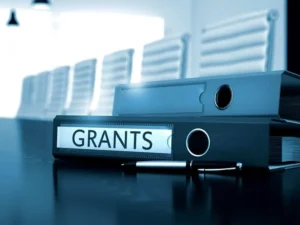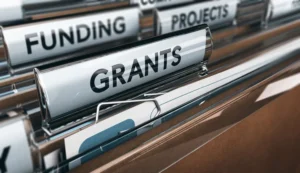A Beginner’s Guide to Free Government Grants

In the current world, when money is sometimes tight, government grants are precious as windows of opportunity. These awards can give those with creative concepts, large-scale initiatives, or admirable causes the necessary money to realize their goals. However, because there are so many programmes, eligibility conditions, and application processes associated with government grants, it may be intimidating for novices to navigate this complex environment. Every step in this book, from comprehending the fundamentals of government grants to developing strong grant submissions, is intended to provide the information and resources you need to start your grant-seeking endeavour. By the conclusion, you will have a solid understanding of government grant programmes and be confident of your capacity to locate, apply for, and potentially secure the funding you need to bring your aspirations to fruition. Let’s embark on this enlightening expedition into free government grants, where opportunities abound for those with vision, dedication, and a willingness to learn.
· Understand what government grants are:

Government grants are sums of money given to people, companies, nonprofits, or other organizations by governmental bodies to support certain ideas, projects, or activities that align with public policy goals. Because grants do not need repayment, like loans, are a desirable source of money for various projects. These grants are used for various purposes, including innovation and scientific research, economic development, lifestyle improvement through free government grants for veterans, education initiatives, community infrastructure improvement, and social issues like poverty alleviation and environmental conservation.
Federal, state, and municipal governments may award grants, and competitive application processes are usually used to distribute them. Each grant programme has specific standards for eligibility, applications, funding priorities, and reporting that applicants must follow to be considered for funding. Government grants are essential for promoting social objectives, boosting economic growth, and enabling people and organizations to meaningfully contribute to their communities and beyond. The first step to maximizing government grants’ ability to promote change and accomplish your goals is to understand their nature.
· Identify the types of grants available:

There are many government grants, each with distinct goals and intended recipients. These are a few typical categories of government grants:
Research Grants: These grants support scientific research and innovation in healthcare, technology, energy, and the environment. They are often awarded to universities, research institutions, and individual researchers to conduct studies and develop new knowledge.
Small Business Grants: Designed to foster entrepreneurship and economic growth, these grants provide funding to small businesses and startups for activities such as business development, expansion, innovation, and job creation.
Education Grants: These grants aim to improve access to quality education and support educational initiatives at all levels, from early childhood education to higher education. They may fund programs, projects, scholarships, or infrastructure improvements in schools and educational institutions.
Community Development Grants: These grants focus on enhancing the quality of life in communities by supporting projects related to housing, infrastructure, economic development, healthcare, social services, and cultural enrichment.
Nonprofit Organization Grants: These grants support the missions and activities of nonprofit organizations, including charities, foundations, and community-based organizations. Funding for programs, services, capacity-building efforts, or operational expenses may be provided.
Environmental Grants: Aimed at promoting environmental conservation, sustainability, and climate resilience, these grants fund projects such as habitat restoration, pollution prevention, renewable energy initiatives, and environmental education programs.
Healthcare Grants: These grants support efforts to improve public health, healthcare access, and healthcare delivery systems. They may fund medical research, healthcare infrastructure projects, disease prevention programs, and initiatives to address healthcare disparities.
Arts and Culture Grants: These grants support artistic and cultural endeavours, including visual arts, performing arts, literature, heritage preservation, and cultural festivals. Funding for arts organizations, individual artists, museums, and community arts programs may be provided.
Agricultural Grants: These grants support farmers, ranchers, and agricultural businesses by funding projects related to crop production, livestock management, sustainable agriculture practices, and rural development.
Disaster Relief Grants: These grants provide financial assistance to individuals, businesses, and communities affected by natural disasters, such as hurricanes, earthquakes, floods, and wildfires. They help cover emergency expenses, infrastructure repairs, and recovery efforts.
These are but a handful of the many kinds of government grants offered. Extra grant programmes may exist to address specific needs and difficulties within society, contingent upon the goals and policies of governmental institutions.
· Research grant opportunities:

Research grants support various sectors’ knowledge advancement, issue resolution, and innovation. Here are a few strategies for finding chances for research grants:
Government Agencies: Explore grant opportunities offered by government agencies such as the National Institutes of Health (NIH), National Science Foundation (NSF), Department of Energy (DOE), Department of Defense (DOD), and others. These agencies often fund research projects in health, science, technology, energy, defence, and social sciences.
Grant Databases and Directories: Utilize online databases and directories that aggregate information about research grants from various sources. Websites like Grants.gov, NIH RePORTER, NSF’s Research.gov, and Pivot offer comprehensive databases of grant opportunities that are searchable by keywords, funding agencies, and eligibility criteria.
Professional Associations and Societies: Many professional and scientific societies offer grant programs to support research in specific disciplines or fields. Explore the websites of relevant associations in your area of expertise to learn about available grant opportunities, eligibility requirements, and application deadlines.
Foundations and Nonprofit Organizations: Some private foundations and nonprofit organizations provide research grants to support academic and scientific research in areas aligned with their mission and priorities. Research philanthropic organizations that fund projects relevant to your research interests and explore their grant programs and application guidelines.
Collaborations and Partnerships: Collaborate with academic institutions, research centres, industry partners, or international organizations with access to research funding or grant opportunities. Joining interdisciplinary research teams or consortia can increase your chances of securing funding for collaborative research projects.
Professional Networks and Conferences: Attend professional conferences, workshops, and networking events within your field to connect with colleagues, researchers, and funding agencies. These events provide insight into upcoming grant opportunities, funding trends, and research priorities.
Funding Alerts and Newsletters: Subscribe to funding alerts, newsletters, and mailing lists offered by grant-making organizations, government agencies, and research institutions. These resources can inform you about new grant opportunities, funding announcements, and important updates related to research funding.
Consult Funding Experts: Seek guidance from research administrators, grant coordinators, or faculty mentors at your institution who can provide advice and assistance in identifying research grant opportunities, preparing grant proposals, and navigating the grant application process.
You may increase your chances of getting the funds you need to finance your research projects and contribute meaningfully to advancing knowledge and innovation in your profession by actively pursuing these channels and keeping yourself updated about research funding options.
· Check eligibility requirements:

Reviewing the precise instructions supplied by the funding agency or organization is crucial when determining eligibility requirements for research grants. You can use the following checklist to guide you through the eligibility requirements:
Applicant Type: Determine whether the grant is open to individuals, academic institutions, nonprofit organizations, for-profit businesses, or other entities. Some grants may restrict applicant types or prioritize specific categories, such as early-career researchers or established investigators.
Research Focus: Assess whether your research project aligns with the funding priorities and areas of interest specified by the grant program. Grants often target specific research topics, disciplines, or thematic areas, and your project must address these priorities to be eligible for funding.
Project Scope and Objectives: Ensure that your research project meets the scope and objectives outlined in the grant guidelines. Describe how your proposed research aims to advance knowledge, address fundamental research questions, or solve specific problems within the field.
Budget and Funding Limits: Review the budgetary requirements and funding limits specified by the grant program. Determine whether the proposed budget for your research project falls within the allowable funding range and complies with any budgetary restrictions or guidelines provided.
Duration and Timeline: Check the duration of the grant award and ensure that your proposed project timeline aligns with the funding period specified by the grant program. Be prepared to provide a detailed project timeline, milestones, and deliverables for your grant application.
Collaboration and Partnerships: If the grant program encourages or requires collaboration with other institutions, researchers, or stakeholders, identify potential collaborators and establish partnerships as needed. Review any collaboration requirements or expectations outlined in the grant guidelines.
Compliance and Ethics: Ensure your research project complies with relevant ethical standards, regulations, and institutional policies governing research conduct, human subjects protection, animal welfare, biosafety, and other ethical considerations. Be prepared to address ethical and compliance requirements in your grant application.
Submission Requirements: Familiarize yourself with the specific submission requirements, format guidelines, and application instructions provided by the funding agency or organization. Prepare all required application materials, such as project proposals, sketches, budgets, letters of support, and any additional documentation requested.
· Prepare a strong application:

Careful preparation, close attention to detail, and a clear explanation of your research aims, methods, and expected results are necessary when preparing a compelling proposal for a research grant. The following guidelines will assist you in creating a solid grant application:
Understand the Grant Guidelines: Thoroughly review the grant guidelines provided by the funding agency or organization. Pay close attention to eligibility criteria, submission requirements, evaluation criteria, and any specific instructions or formatting guidelines for the application.
Develop a Clear Research Plan: Clearly articulate your research objectives, hypotheses, and methodology. Describe the significance of your research question or problem, the approach you will take to address it, and the potential impact of your findings. Outline a detailed research plan, including experimental design, data collection methods, and analysis techniques.
Highlight Your Qualifications: Emphasize your qualifications, expertise, and experience relevant to the proposed research project. Provide a brief overview of your academic background, research experience, publications, presentations, and any other relevant achievements or credentials demonstrating your ability to carry out the proposed research successfully.
Justify Budgetary Requests: Prepare a detailed budget that accurately reflects the costs associated with your research project. Justify each budget item, including personnel salaries, equipment purchases, supplies, travel expenses, and other direct or indirect costs. Align your budget with the objectives and scope of the research project, and ensure that it adheres to the budgetary constraints specified by the grant guidelines.
Demonstrate Innovation and Impact: Highlight your research project’s novelty, innovation, and potential impact. Explain how your proposed research fills a knowledge gap, advances the field, or addresses a pressing societal problem. Articulate the broader significance of your research and its implications for theory, practice, policy, or practical applications.
Conclusion
The process of crafting a compelling proposal for a research grant is complex and calls for careful planning, close attention to detail, and a clear description of your goals, approach, and expected results. You may improve the calibre and competitiveness of your grant proposal and raise your chances of getting research funding to support your studies by paying attention to these essential details and adhering to best practices for grant writing. Remember that getting financing for your study is a competitive process, and winning a grant requires more than just willpower.



